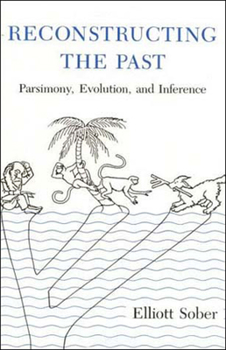Reconstructing the Past: Parsimony, Evolution, and Inference
Select Format
Select Condition 
Book Overview
Reconstructing the Past seeks to clarify and help resolve the vexing methodological issues that arise when biologists try to answer such questions as whether human beings are more closely related to... This description may be from another edition of this product.
Format:Paperback
Language:English
ISBN:0262691442
ISBN13:9780262691444
Release Date:February 1991
Publisher:MIT Press
Length:288 Pages
Weight:1.00 lbs.
Dimensions:0.7" x 5.9" x 8.9"
Age Range:18 years and up
Grade Range:Postsecondary and higher
Customer Reviews
1 rating
Parsimony & assumptions about the world
Published by Thriftbooks.com User , 21 years ago
Sober has spent much of his academic life trying to figure out why we prefer the most simple explanations in science and what the underlying empirical assumptions of such a preference are. In "Reconstructing the Past", he takes on to advance the discussion of parsimony as an inferential method in systematics, focussing on the discussion among Farris and Felsenstein throughout the 70s & 80s. Sober is (in my opinion) a very sophiscated empiricist philosopher, so he attempts to motivate an argument in favor of parsimony, yet adopts a likelihood-kind of solution to the problem of phylogeny reconstruction - the so-called "Smith/Quackdoodle Theorem." Whether this particular solution will advance our understanding of systematics remains to be seen, yet I consider this book invaluable in another sense: it drives home very convincingly the claim that parsimony has no a priori justification in systematics. Rather, using parsimony reliably requires that we make some approximately correct inference about the abundance and directionality of homoplasy in cladistic characters. Sober interprets Felsenstein's seminal 1978 paper (about "positively misleading" parsimony) philosophically. That is, if we can conceive hypothetical examples in which parsimony fails, this must mean that using parsimony cannot be deductively valid as some Popper-oriented cladists have tried to argue. This doesn't mean in any way that parsimony shouldn't be used, but rather that using parsimony must have an a posteriori, inductive justification. I believe that these widely ignored insights will eventually have an impact on the current debate between cladists and likelihoodist. If you are interested in the conceptual aspects of this debate, Sober's book is a must.




